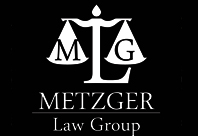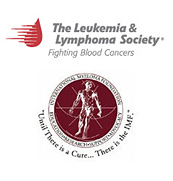The Message in Lockheed: Expert Opinions Must be Relevant
by Raphael Metzger
The recent decision of Division 3 of the Second Appellate District in Lockheed Litigation Cases has prompted the defense bar to proclaim that trial judges now have the authority to determine the scientific validity of expert medical testimony. See, Frederick Ufkes’ editorial “Message in ‘Lockheed’: Courts Must Control Medical Testimony.” Not so.
The Lockheed Court held that in rendering an expert opinion, an expert must rely on materials that are relevant to the subject of the expert’s opinion . The rest of the Court’s opinion is unfortunate dictum.
In Lockheed a plaintiff’s medical expert opined that certain chemicals which are not carcinogens cause cancer. Of course, this is ridiculous. How did the expert reach such an absurd conclusion? The expert reviewed many epidemiologic studies which show that exposure to mixed organic solvents increases the risk of cancer. The results of the studies were not surprising, because organic solvents contain benzene, a known human carcinogen, so chemical mixtures which contain benzene would be expected to increase the occurrence of human cancer. However, based on these studies, the expert opined that certain constituents of mixed organic solvents, such as acetone, isopropyl alcohol, and methyl ethyl ketone therefore cause cancer.
In so opining, the expert made a fundamental error in logic. The error in logic is apparent to any high school student who has studied elementary logic: Assume that A (acetone) or B (benzene) or I (isopropyl alcohol) or M (methyl ethyl ketone) cause C (cancer). Does it logically follow that A (acetone) causes C (cancer)? No. Logic dictates that the most one can conclude is that either A, B, I or M causes cancer - not that each one does.
The Lockheed Court perceived the error in the expert’s logic: “The epidemiologic studies that Dr. Teitelbaum relied on all involved exposure to multiple solvents, including solvents not at issue here. The Court concluded that the multiple-solvent epidemiological studies showing an association between exposure to multiple solvents and various ailments did not support the conclusion that any one of the solvents at issue here can cause a disease. We conclude the Court’s conclusion was sound.”
The Lockheed Court reasoned that all of the epidemiologic studies on which the expert relied did not in reason tend to prove that any particular chemical in the toxic soup causes cancer and were therefore not relevant to the issue whether acetone or isopropyl alcohol causes cancer. Since the expert only relied on studies which were irrelevant to the issue, his opinion was likewise irrelevant and was properly excluded as being irrelevant. See, Cal. Evid. Code § 350 [“No evidence is admissible except relevant evidence.”]
That should have been the end of the Court’s opinion. But the Lockheed Court, in dicta, also based its affirmance on Evid. Code § 801(b), which states that an expert may base his opinion “on matter . . . that is of a type that reasonably may be relied upon by an expert in forming an opinion upon the subject to which his testimony relates.” Obviously, an expert cannot reasonably rely solely on irrelevant data in rendering an opinion. Because the only studies that the expert relied upon were irrelevant, the expert’s opinion did not satisfy § 801(b).
However, the Lockheed Court “construed” § 801(b) “to mean that the matter relied on must provide a reasonable basis for the particular opinion offered.” In so doing, the Lockheed Court suggested that trial Courts may, under § 801(b), decide not just whether the matter on which an expert relies is relevant, but whether, as a matter of sound science and medicine, it adequately supports the expert’s conclusion. In other words, the Lockheed Court suggested that trial Courts may engage in a Daubert-type analysis under Evidence Code § 801(b). In this dictum, the Lockheed Court erred.
In People v. Leahy (1994) 8 Cal.4th 587, the California Supreme Court expressly rejected the federal Daubert standard in California. In Roberti v. Andy’s Termite & Pest Control, Inc. (2003) Cal.App.4th 893, the Second Appellate District specifically held that trial Courts may not engage in a Daubert analysis or any other threshold evidentiary analysis in determining whether an expert’s opinion is admissible on the issue of causation in a toxic tort case. Thus, the Lockheed Court’s dictum contravenes the Supreme Court’s decision in Leahy, as well as Roberti .
Worse yet, in reaching this erroneous conclusion, the Lockheed Court misinterpreted Evid. Code § 801(b), which merely requires that the type of matter on which an expert relies be of the type that qualified experts consider in reaching opinions on the subject. There was nothing wrong in the expert’s reliance on published, peer-reviewed epidemiologic studies and monographs of the International Agency for Research on Cancer in rendering an opinion on cancer causation. Rather, the expert’s error was in relying on studies that were irrelevant to the case.
In drafting Evid. Code § 801(b), the Legislature carefully chose its words. It said that the matter on which an expert relies must be such as an expert would reasonably rely in forming an opinion “upon the subject to which his testimony relates” not “for the particular opinion offered.” By so “construing” Evid. Code § 801(b), the Lockheed Court violated the fundamental rule of statutory construction that where the language of a statute is clear, its plain meaning must be given effect. In so doing, the Lockheed Court, in dictum, created a new rule of evidence that is contrary to the law established by our Supreme Court.
The Lockheed Court had no power to create a new rule of evidence. See California Court Reporters v. Judicial Council (1995) 39 Cal.App.4th 15, 22 [“The Constitution reserves to the Legislature ... the ... right to provide rules of procedure.”] Evid. Code § 351 states: “Except as otherwise provided by statute, all relevant evidence is admissible.” Thus, pursuant to the Evidence Code, an expert’s opinion must be admitted provided that it is relevant and is not otherwise excludable pursuant to a specific statute.
The Evidence Code allows courts to exclude the opinions of scientific and medical experts when their opinion is not relevant (Evid. Code § 350), when the expert is not qualified (Evid. Code § 720(a)), when the expert’s opinion does not “relate to a subject that is sufficiently beyond common experience” and therefore would not “assist the trier of fact” "(Evid. Code § 801(a)", when the expert relies on matter that is of a type that reasonably may be relied upon by an expert in forming an opinion upon the subject to which his testimony relates” (Evid. Code § 801(b)), and when the probative value of the expert’s opinion is “substantially outweighed by the probability that its admission will necessitate undue consumption of time, or create substantial danger of undue prejudice, of confusing the issues, or of misleading the jury.” Evid. Code § 352.
However, the Evidence Code does not allow Courts to exclude expert opinion merely because a trial Court does not consider the basis for the expert’s opinion to adequately support “the particular opinion offered,” as the Lockheed Court suggested in dictum. Courts are not qualified to assess the validity of expert scientific and medical opinions and have no authority under California law to make such determinations. In fact, doing so invades the province of jury of evaluating, determining the credibility, the reliability, and the weight of expert testimony.
Indeed, several courts have recently held that when trial courts engage in a Daubert-type analysis, they violate a plaintiff’s right to a jury trial. See, e.g., Howerton v. Arai Helmet, Ltd. (2004) 358 N.C. 440, 597 S.E.2d 674, 692 [“we are concerned that trial courts asserting sweeping pre-trial ‘gatekeeping’ authority under Daubert may unnecessarily encroach upon the constitutionally-mandated function of the jury to decide issues of fact and to assess the weight of the evidence.”]; Brasher v. Sandoz Pharmaceuticals Corp. (N.D. Ala. 2001) 160 F. Supp. 2d 1291, 1295 (applying Daubert, but acknowledging that “[f]or the trial court to overreach in the gatekeeping function and determine whether the opinion evidence is correct or worthy of credence is to usurp the jury's right to decide the facts of the case”]; Logerquist v. McVey (2000) 196 Ariz. 470, 488, 1 P.3d 113, 131 [“The Daubert/Joiner/Kumho trilogy of cases . . . puts the judge in the position of passing on the weight or credibility of the expert's testimony, something we believe crosses the line between the legal task of ruling on the foundation and relevance of evidence and the jury's function of whom to believe and why, whose testimony to accept, and on what basis.”]; Bunting v. Jamieson (Wyo. 1999) 984 P.2d 467, 472 [adopting Daubert, but nonetheless expressing concern that “application of the Daubert approach to exclude evidence has been criticized as a misappropriation of the jury's responsibilities. . . . ‘[I]t is imperative that the jury retain its fact-finding function.’” (citations omitted).].
In conclusion, the Lockheed Court reached the right conclusion based upon an ordinary relevance determination, but erred in its dictum, which misinterpreted Evid. Code § 801(b). The lesson to be learned from Lockheed is that expert testimony must be relevant - and that bad cases make bad law.
This article was published in the Los Angeles Daily Journal on February 22, 2005, under the title "Appellate Court's Decision in "Lockheed" Was Correct, Mostly"
Raphael Metzger is the principal of the Metzger Law Group, a Plaintiff’s firm specializing in toxic tort litigation. He was not involved in the Lockheed Litigation.




